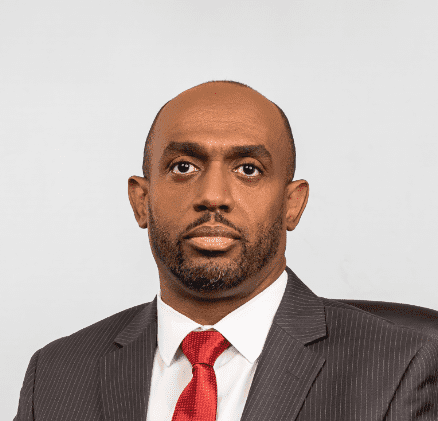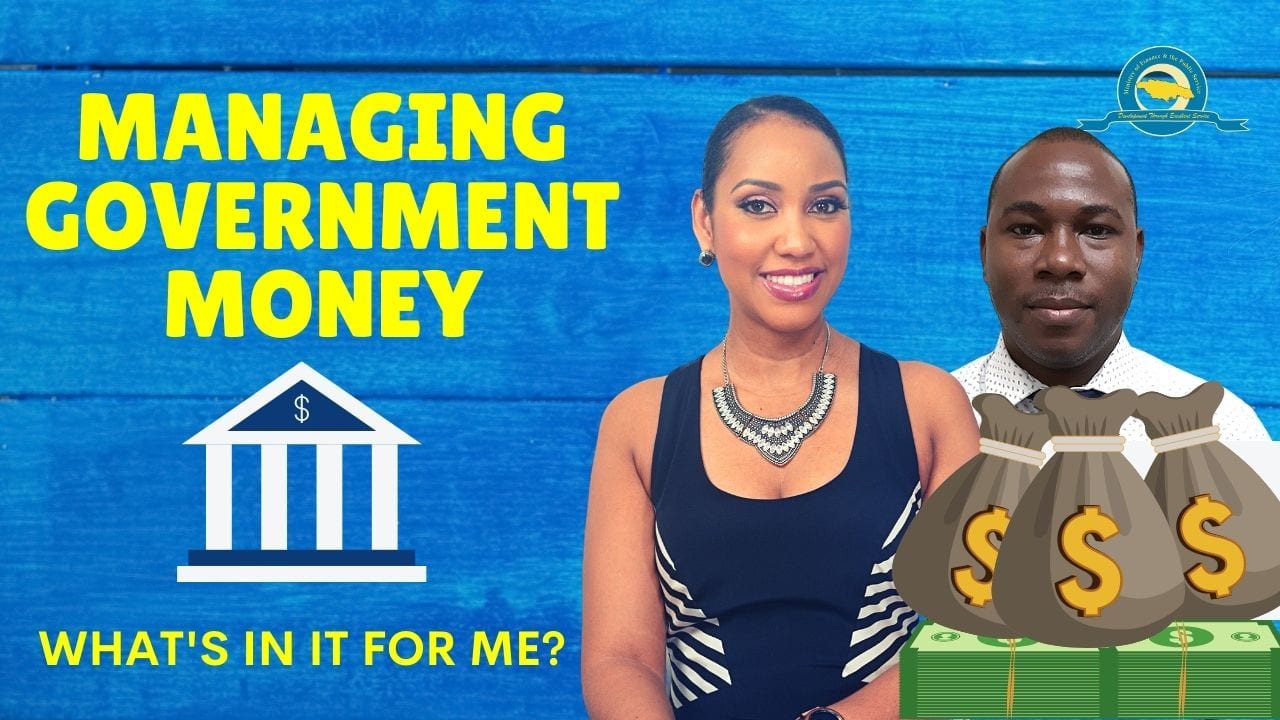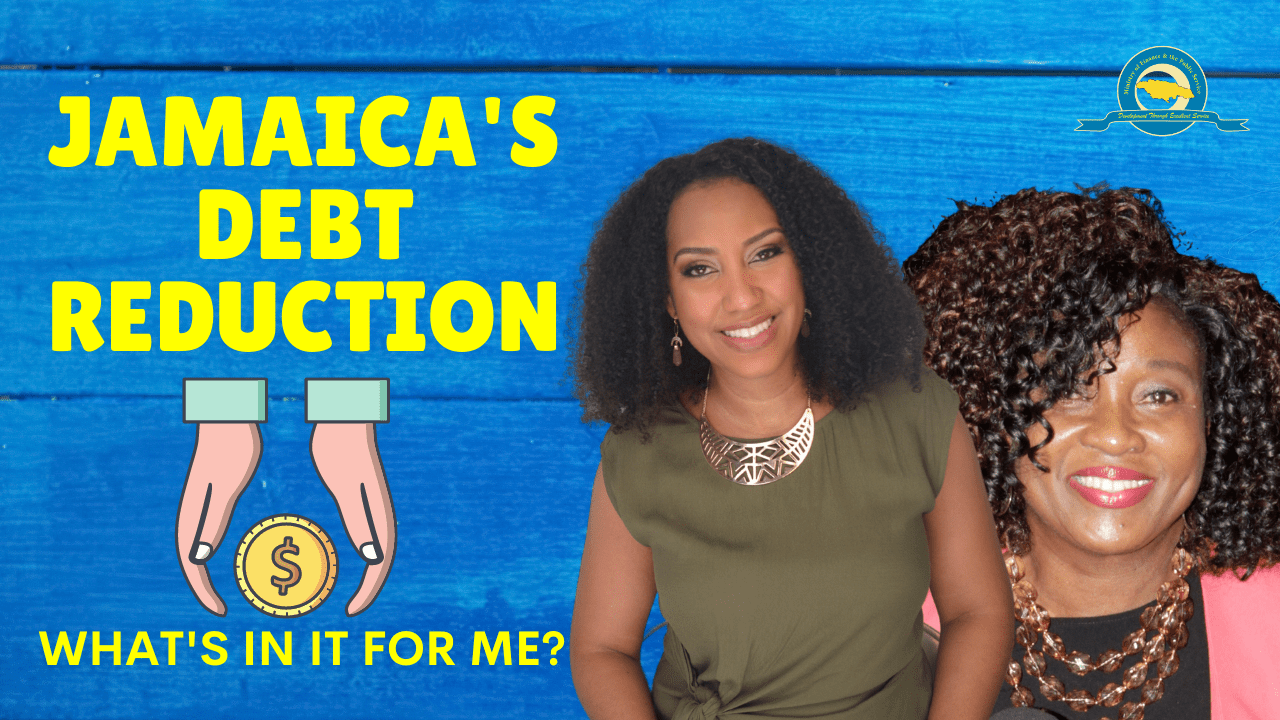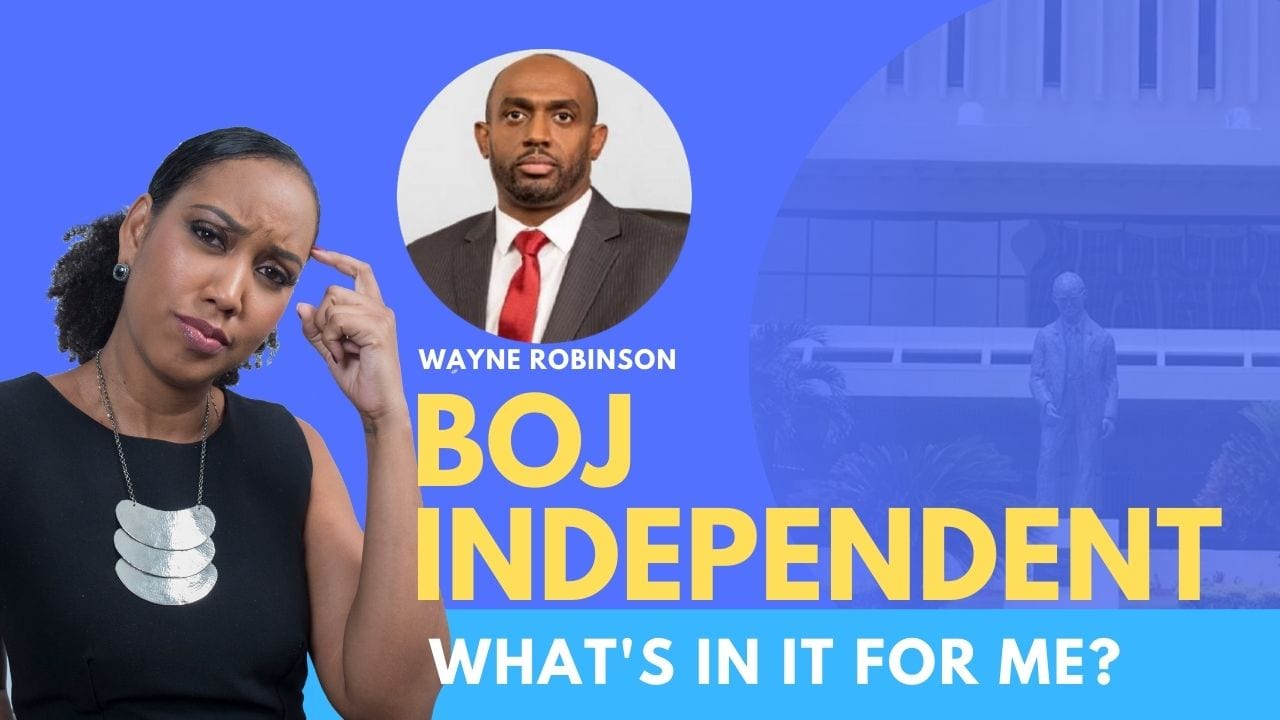The Bank of Jamaica (BOJ) is now fully independent, but what’s in it for me? According to Senior Deputy Governor at the BOJ, Dr. Wayne Robinson, there are three main reasons we should all care about this:
- The BOJ’s independence means politicians no longer have control of the Central Bank. All monetary decisions will be made by a special committee.
- The BOJ is now banned from lending money to the government as it has in the past.
- The average person will have a better sense of where inflation and interest rates are going, giving them a better ability to plan.
No political control
“When we say that the Bank [of Jamaica] is independent, what it means is that the Bank has full autonomy to pursue the policies necessary to achieve its mandates,” said Dr. Robinson.
The BOJ’s primary mandate is price stability; that is, keeping inflation within a particular range to ensure prices don’t rise too high or fall too low. Its other mandate is financial stability.
Even though Dr. Robinson says there has not been political interference during his tenure, having the BOJ’s autonomy enshrined in law is still important because it gives investors and the public confidence that the central bank’s decisions are not being made for political reasons.
“What’s different now is that it is enshrined in law. It’s not left up to the Minister of Finance to determine the level of autonomy,” he added.
No government bailouts
One of the biggest changes to the BOJ Act, is that the Central Bank can no longer lend money to the government.
“One of the things that can undermine monetary policy and generate inflation is the Central Bank funding the government. The Central Bank can fund the government by either providing it with a direct loan, or it can buy government paper on the primary market. The law [now] prohibits that. We can only provide a loan to the government in cases where there’s a national emergency,” explained Dr. Robinson.
“Also we can’t fund the government through the back door by buying government paper. That is prohibited on the primary market…. We can only buy government paper on the secondary market but for specific reasons. [For example], if we want to conduct open market operations where we want to change the level of liquidity in the system, we are allowed to engage in secondary market transactions,” he added.
Government paper refers to bonds, notes, treasury bills and other financial instruments issued by the government. In decades past, these were a major means of funding the government’s spending. Billions of dollars of government paper was issued at very high interest rates, leaving Jamaica as one of the most heavily indebted countries in the world.
Under the new law, the Central Bank is now banned from lending money directly to the government in this way. It can only purchase government paper on the secondary market, meaning from members of the private sector who hold it, rather than from the government itself.
Coupled with the ban on political interference, this means politicians can no longer force the Central Bank to buy government paper to fund its spending.
The Central Bank’s independence was one of the pivotal reforms under Jamaica’s economic programme with the International Monetary Fund (IMF), which began in 2013.
The Bill was finally passed in parliament at the end of 2020 and came into effect on April 16, 2021.
Mo’ Money, No Problem
The passing of the amended Bank of Jamaica Act also resulted in the recapitalization of the BOJ, meaning the government has given the BOJ more funds. According to Dr. Robinson, the BOJ’s capital has increased from J$4 million to J$20.6 billion (yes, you read that right! From a few million to several BILLIONS!).
This increase ensures that the BOJ has the money it needs to achieve its mandates of price and financial stability.
So what’s in it for me?
“The average person – the business person, the bus driver, the taxi man – they want to live in a country where the economy is stable. They have a better sense of where inflation is going, for example. They have a better sense of where interest rates are going. One of the key elements to achieve that is sound monetary policy,” said Dr. Robinson.
“This removes uncertainty which lends to greater investments which lends to more growth and creation of jobs,” he added.
“Jamaica has had a history of economic instability, high and volatile inflation, high and variable interest rates. This reform is part of the package of reforms which will ensure that Jamaica does not go back to that,” said Dr. Robinson.
EPISODE CAST







Leave A Comment